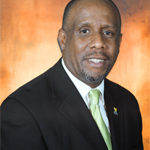
Seventh-day Adventists are people who love freedom. Basing our faith on the Bible and understanding that
the centre of our Christian experience is God Himself we testify that freedom of choice underlines our relationship with God and with our fellow human beings. For Seventh-day Adventists freedom of religion is biblically mandated. We understand that the message of the Holy Scripture is that God forces no one. As created beings we are endowed with dignity and a freedom of choice.
Religious liberty concerns have been on the church’s agenda ever since it was organized. Our leadership fought valiant battles against restrictive Sunday laws in the late 19th century in the United States. Liberty magazine has a history of dating from the 1880s. Also today, your church is vocal about religious liberty issues at the United Nations, in the Council of Europe and other international and national bodies. We support the work of International Religious Liberty Association and Adventist experts to serve as advisors to legislators dealing with laws covering church-state relations.
What Does the Religious Liberty Leader Do?
The Public Affairs & Religious Liberty (PARL) Department has been very much involved with representation to Governments, Congresses, Parliaments and other decision-making Assemblies of all kinds to ensure that religious liberty is recognized and that no infringements of religious rights occur. As such, the Department is one of the oldest in the Church and still carries on this vital role.
The PARL Leader will work:
- By defending the freedom to have, or not to have, a personal religious belief; to maintain, to adopt or to change ones religious or personal belief.
- By guarding the freedom to practice ones religious beliefs in private, in public, or in association with others whether in worship, in practice in teaching or in evangelistic distribution.
- By arousing public opinion and gaining public support for religious liberty, the fundamental right which under-girds all human rights.
- By encouraging the idea of separation of church and state, and defending the church’s ability to act without state interference.
- By upholding the principle of the free exercise of religion and opposing any private or government encroachment that tends to inhibit this principle.
- By taking action to eliminate religious discrimination in both public and private employment
- By educating the public and government representatives through all appropriate means, including publications and media presentations, promoting awareness of the threats to principles of religious liberty.
- By supporting and aiding in the legal defense of religious rights and privileges.
- By engaging in research and education promoting religious freedom.






